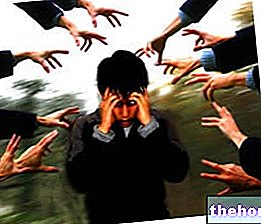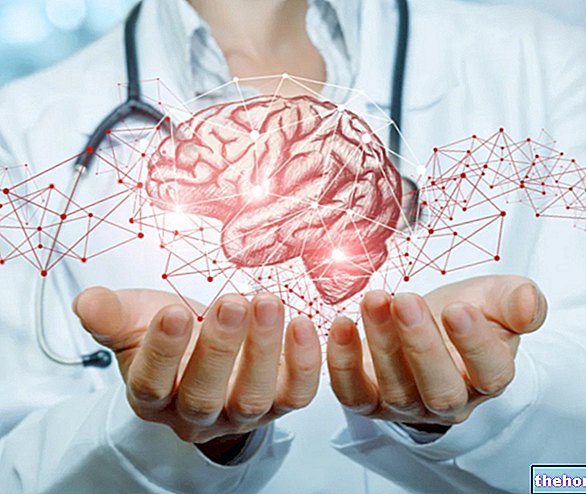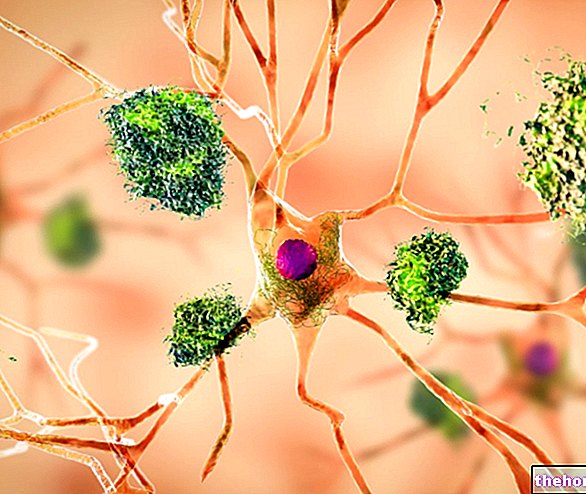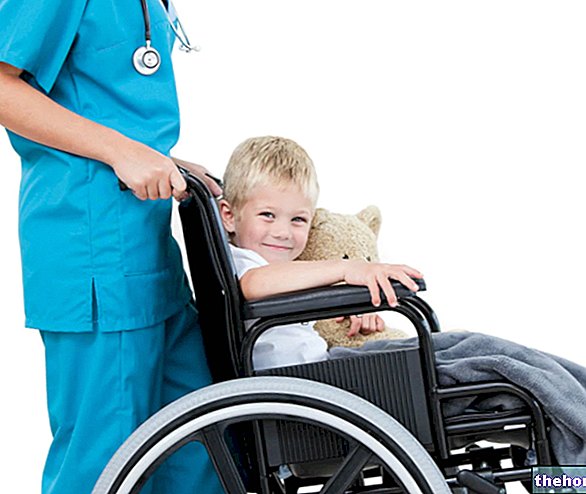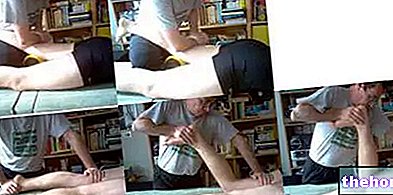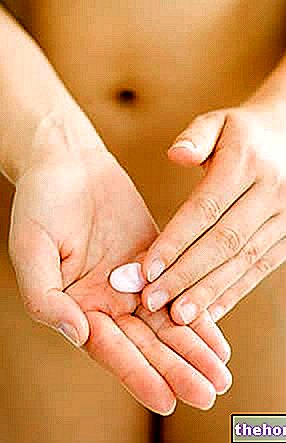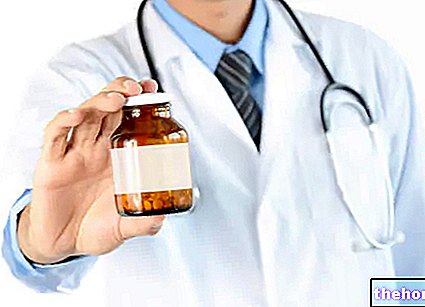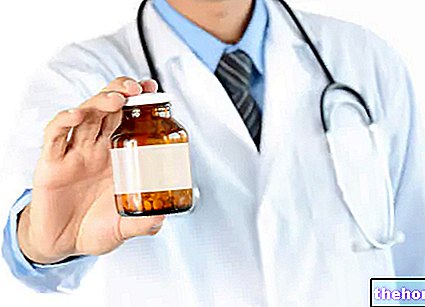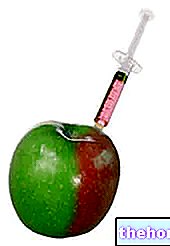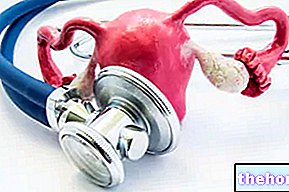It has an "incidence equal to 9-20% of the general population, but it seems to be constantly increasing.
Depressive disorders are quite different from each other and both diagnosis and treatment are difficult to establish with accuracy.

A first subdivision concerns:
- Depressive disorders: major, dysthymic and not otherwise specified.
- Bipolar disorders: type I, II and cyclothymic.
There are two factors that determine depression and they are often co-present. These increase the chances of getting sick, but do not provide any clinical certainty:
- Biological factor: it is a hereditary element that implies physical predisposition. Involved are: glands, hormones, neurotransmitters and nerve receptors.
- Psychological factor: it consists of a greater vulnerability to the disease and often takes root in negative childhood experiences.
The material published is intended to allow quick access to general advice, suggestions and remedies that doctors and textbooks usually dispense for the treatment of Depression; such indications must in no way substitute the opinion of the attending physician or other health specialists in the sector who are treating the patient.
real.Early diagnosis is very often hindered by shame and rejection of this condition.
Below we will list some useful tips to recognize a depressive symptom and suggest how to intervene.
- It is necessary to prevent the consolidation of symptoms and the aggravation of the disease by making an early diagnosis.
- Depression often begins with some simple, apparently "physiological" moods, even if more intense, repeated and close together:
- Negative perception of events.
- Sadness and irritability.
- Feeling of "depression" (it is used to define it as such, but this word is used very often in an inappropriate way, while it tends to be omitted when the doubt is stronger).
- In this first phase it is very important to try to reverse the mood trend as a preventive action.
- If left untreated, these symptoms can evolve into a frankly clinical condition and lead to:
- Depressed mood throughout the day and for several days.
- Inability to feel pleasure during normally fulfilling activities.
- Unmotivated or excessive irritability, negativity, and emotional pain.
- Anhedonia (tiredness, fatigue, lack of energy).
- Abnormal increase or decrease in appetite.
- Sleep disorders.
- Slowing or motor agitation.
- Lack of concentration.
- Feeling of failure, guilt (own or others) and worthlessness.
- Tendency to isolation.
- Recurring thoughts on suicide.
- The most important diagnostic aspect is the pervasiveness of the symptoms (ie the constancy and duration), but it is not certain that they occur all at the same time.
- If you suspect that you are suffering from a depressive disorder, it is necessary to consult a doctor immediately:
- Primary care physician for the first approach: usually prescribes mild medications to facilitate spontaneous remission.
- Specialist: psychiatrist or neurologist. It is able to more accurately identify the type of disorder and prescribe a specific therapy.
- Therapist: psychologist - psychotherapist. It identifies the psychological mechanism that causes the mood disturbance and intervenes by modifying the mental pathways, the processing system, etc. It does not prescribe drugs.
- That said, some very important tips for prevention (at the first symptoms) and also for treatment are:
- Do not abandon customary activities.
- Attend the community.
- Adhere to a balanced diet.
- Practicing sports motor activity.
- Do not abuse psychotropic substances: alcoholism, drugs, smoking, binge eating desorder (compulsive eating).
- Avoid only circumstances that actually cause suffering.
- Dedicate yourself to interesting activities capable of "disconnecting the brain" from brooding (constantly thinking about the future) or rumination (constantly thinking about the past).
- Abandon clichés, try to overcome shame and seek help in times of need. By contacting a specialist early, in most cases the problem can be solved with light interventions and without leaving too significant experiences.
- Ultimately, the main remedies are:
- Psychotherapy.
- Pharmacological therapy.
- A combination of both.
In general it is recommended to:
- Adopt a normal-calorie and balanced diet. Sometimes it requires a special effort, as some drugs used in the treatment have an anorectic effect.
- Respect a diet with the right fraction of carbohydrates.
- Hypoglycemia and possible ketoacidosis caused by fasting or a low carb diet alter mood, creating a "fluctuating" trend.
- Hyperglycemia caused by a diet that is too high in carbohydrates can lead to decreased use of glucose by the brain tissue, confusion, slowdown and lethargy.
- If desired, take a portion of coffee when you wake up in the morning (worst time in depressed people); it can improve mood, as long as it does not interfere with pharmacological action.
- Promote the consumption of foods rich in omega 3: they guarantee the integrity of neurons; therefore also their functionality. They are abundant in peach products, in certain oil seeds (flax, kiwi, grapeseed, soy, etc.) and related oils, krill, cod liver etc.
- Advanced relaxation techniques: of any kind. Some are katabasis, shiatsu, watsu, maternage etc.
- Transcendental Meditation.
- Mental training: induced or autogenous.
- Yoga: Pranayama is especially useful.
- Aromatherapy.
- Hypericum: it is the most effective. It has an inhibitory action towards the reuptake of noadrenaline and serotonin in a manner comparable to tricyclics or to inhibitors of the reuptake of serotonin and noradrenaline.
- Valerian.
- Eleutherococcus.
- Passionflower.
- Chamomile.
- Linden.
- Peppermint.
- Hawthorn.
- Elder.
- Mistletoe.
- Hop.
- Amitriptyline: for example Laroxyl, Triptizol, Adepril.
- Imipramine: for example Imipra C FN, Tofranil.
- Nortriptyline: for example Dominans, Noritren.
- Others are: clomipramine, dosulepin, doxepin, trazodonelo, phepramine.
- Fluoxetine: for example Prozac, Azur, Flotina, Fluoxeren.
- Citalopram: for example Seropram.
- Sertraline: for example Zoloft, Tralisen.
- Bupropion: for example Elontril, Wellbutrin, Zyban.
- Duloxetine: for example Xeristar, Yentreve, Ariclaim, Cymbalta.
- Venlafaxine: for example Efexor.
- Phenelzine: for example Margyl.
- Isocarboxazide: for example Marplan.
- Tranylcypromine: for example Parmodalin.
The basic rules for preventing and reducing depressive symptoms can be summarized as follows:
- Strive to maintain a normal lifestyle and carry on customary activities.
- Attend the community and not isolate yourself.
- Remember that rumination and brooding DO NOT lead to any solution; on the contrary, they tend to aggravate the symptoms.
- Rationalize your condition and always act for your own good, putting aside guilt, shame and resentment.
- Respect a balanced diet avoiding fasting, overeating and attitudes that can introduce any eating disorders (anorexia, bulimia, binge eating desorder, grignottage).
- Practice sports motor activity, but avoid it becoming a "stressful" activity.
- Set aside time for activities that can be rewarding and mood-enhancing.
- Totally avoid psychotropic substances (alcohol, drugs, nicotine, etc.).
- If possible, eliminate all uncomfortable circumstances.
- Consult a specialist.

